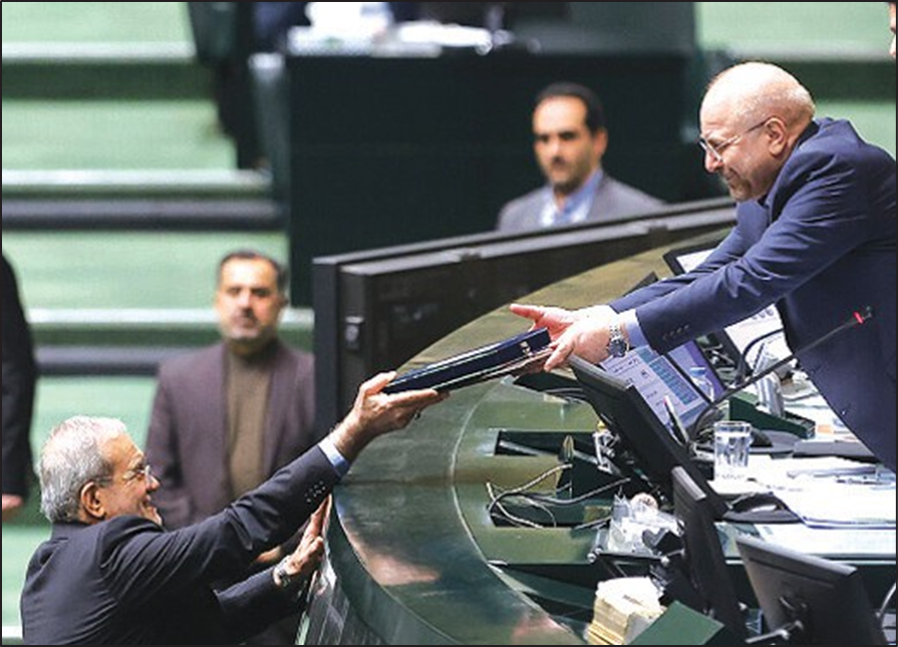August 06, 2021
Hossain Selahvarzi, the deputy head of Iran’s Chamber of Commerce, Industries, Mines and Agriculture, says the Iranian economy is badly screwed up, with the regime pursuing policies that may help the rich but do much harm to the country as a whole and to most of its citizens.
In a recent article on the Chamber website, he said President-elect Ebrahim Raisi will have to grapple with economic issues more than anything else during the next four years.
One of the main issues of Iran’s economy over recent decades has been the fact that the private sector and the government have contrasting opinions about the principles of economics. He then listed several areas where he urged that government policies be changed.
Inflation: Economic players in both the private sector and government agree on the adverse effects of inflation. But unlike government officials, who assume that inflation emerges from price gouging, the private sector believes that inflation is a result of an imbalance between the government’s spending and income. “I humbly ask the president-elect to build financial discipline in government affairs to control inflation,” Selahvarzi wrote.
Banking system: Politicians see the banking system as a channel that distributes money on behalf of the government, but the private sector knows this is the root of corruption and leads to the suppression of productivity in manufacturing and commerce. Banking is a business involving the exchange of “credit” and, like other businesses, it will put up its best performance when government interventions have been reduced to a minimum.
Foreign currency: That the politicians see foreign currency as a strategic reserve to manage the economy is the sinister legacy of a single-product oil economy and a development model centered on it. The forex market needs to be deepened through development of derivatives, easing the environment for foreign trade and, of course, the government’s avoidance of showy, inexpert interferences.
Stock market: A significant part of economic growth depends on entrepreneurship that comes from the creation of opportunity for risk trading. The stock market is the main institution for such activities, he writes. Officials are neither responsible for shareholders’ profits or losses, nor the state of the market. They only need to ensure transparency as well as free and fair trade, the stock market will then find its true function, which is the creation of added value by paving the way for risk taking and helping finance enterprises.
Permits and regulations: Unnecessary regulations have been pursued for decades in the name of safeguarding people’s rights. But it is actually like a proverbial well for generating benefits for a handful of corrupt individuals at the margins of government and a group of rent-seekers in the private sector. “If the president is determined to improve production and people’s livelihoods, he’d better plug this well,” Selahvarzi said.
Foreign trade: Foreign trade is vital for a sustainable economic growth. Today, the main challenge with foreign trade is outside the realm of the economy and in the hands of politicians. Political barriers in the way of Iran’s participation in the international financial system should be removed. Private sector players know how to skillfully conquer markets and develop foreign trade.
Pricing: Pricing is another form of unnecessary regulation, but it is so important that it must be addressed separately, Selahvarzi said. The pricing system, like other forms of regulatory practices, has been established in the name of serving people but is really an important tool of the corrupt group of people in Iran’s economy and the main cause of lack of motivation for production. Pricing rids the market of its function, i.e., finding the market-clearing price (equilibrium price), and instead allows bureaucratic institutions to do the task. In doing so, pricing prevents the economy from its main goal, which is the optimal allocation of resources for sustainable growth. Going against this old tradition of government interference in pricing requires a steely resolve.
Self-sufficiency: To many politicians, self-sufficiency strengthens the country but it is in fact a dangerous idea based on a misunderstanding of the nature of the economy. Economies need resilience and not self-sufficiency. Even if self-sufficiency were possible, it would lead to the decline in productivity and resilience, and make the country vulnerable.
Production, investment and improvement of business environment: A lot has been said about production, investment and improvement of the business environment. The best the government can do is to right its behavior about all the issues above.

















